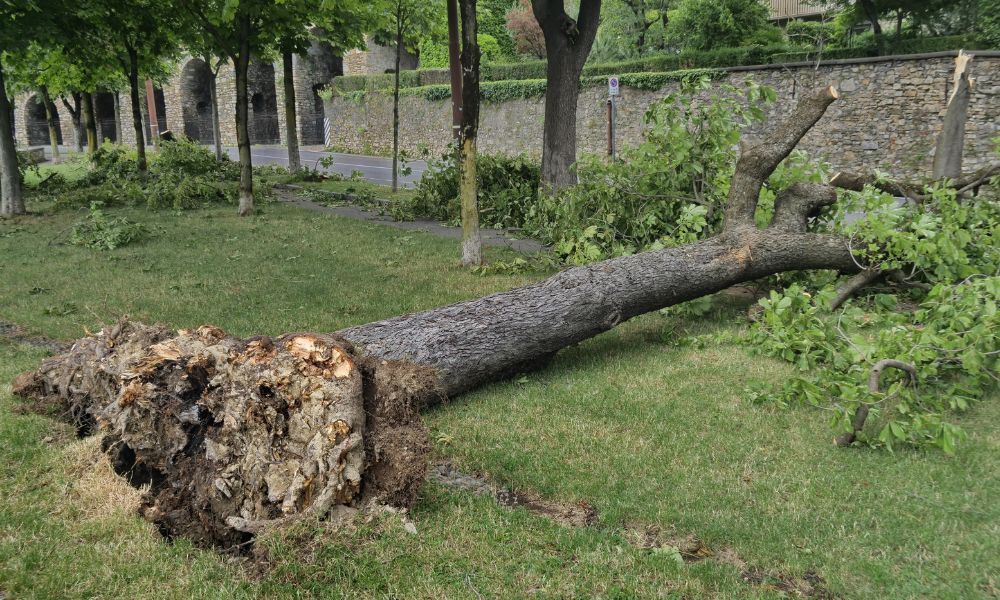Activist tells COS how she helped dismantle the asbestos industry

“I’ve cared about social justice all my life,” says Kathleen Ruff. You may not know her name, but her efforts to ban asbestos have most likely saved hundreds of thousands of lives – not only in Canada, but around the world.
Ruff, the Founder of RightOnCanada and Senior Advisor to the Rideau Institute, grew up in a working class family in London, moving to Canada after university. She previously served as Director of the BC Human Rights Commission.
“I had become a voice in the media [as director],” says Ruff, notably on gender discrimination, pay inequality and the status of women in Canada. “We did some pretty amazing things.”
Staunch support
Ruff joined the fight to ban asbestos in 2007. She said that when she heard about the issue, she hadn’t planned on devoting all of her time to it because she was involved in a number of other human rights issues.
“But no one else was working on the issue, and it was hard to walk away,” she says, “because what we were doing as a country was exporting harm and suffering and death for profit.”
At that time, the asbestos industry had staunch support from every Quebec and Canadian political party – with Quebec being the centre of the industry.
She says that the industry, supported by federal and provincial governments, created a climate of intimidation and eschewed scientific evidence which proved asbestos to be unsafe.
So strong was the support for the asbestos industry that in 2006, the Canadian government played a key role in opposing the listing of chrysotile asbestos as a hazardous substance under the United Nations (UN) Rotterdam Convention.
Hearts and minds
Because of the power of the asbestos industry, Ruff says that she and the other advocates figured that they needed to build public pressure on the provincial government to bring the issue to light.
Ruff, alongside a handful of other advocates, started a campaign to change the public perception around the use of asbestos, turning it into a social justice issue which eventually spawned the end of the asbestos in Quebec and in Canada.
The strategy was to publicly, and repeatedly, call out those involved and gain public support:
“If you’re an activist for social justice, you’ve got to appeal in a way that resonates with them, that makes sense to them,” says Ruff.
“It’s no good being right, it’s not enough – you won’t win unless you can get media coverage or make it a public issue,” she says.
The group appealed to Quebec values, says Ruff, speaking about the country’s unique heritage and claims to independence, “if you’ve been put down, you care a lot about your reputation and how you’ve been seen. It brought the issue home to people in Quebec, they could see that people were suffering and dying. It made it a human issue.”
Industry collapse
Ruff says that scientists and journalists rallying to their cause helped strengthen the campaign. “What saved the day I think was that the Quebec scientists, health experts, […] they were willing to speak out strong and clear and loudly, and challenge the premier and put forward the scientific evidence. To my mind, what was important was having support of Quebec scientific experts on occupational and environmental health.”
In addition, she says that gaining media coverage was essential. But initially there was no one in the media covering asbestos – and certainly not its negative effects.
Eventually, Ruff says she found a journalist who cared about the cause, and slowly brought other journalists on board.
“The asbestos lobby tried to silence these journalists and tried to get them into trouble, but they were brave journalists who were willing to speak up, and it grew from there,” she says.
Eventually, public health bodies also called for asbestos to be banned. By 2011, the asbestos industry had also lost union support. Finally, as a result of the campaign, the industry collapsed:
“The industry, although it had all the money and support – at first – they lost that support bit by bit.”
A $58 million loan has initially been given to the Jeffrey Mine in the town of Asbestos. This loan had been given by the Charest government in June 2012. By September that year, political winds had turned, and the loan was cancelled.
The last two asbestos mines in Quebec were shut down, and all mining and export of asbestos ceased.
No glory
In 2016, Ruff received a medal of honour of the Quebec National Assembly for her extraordinary efforts. Also that year, the federal government announced that it was finally planning on banning asbestos by 2018.
But there is no glory in this act for the Canadian government, she says, who for too long were swayed by industry influence despite proof that asbestos was harmful for workers:
“It’s a shameful story for the Canadian government, it’s not a glorious story at all – although they tried to pretend it is,” she says. “I’m glad they banned [asbestos] but they only did it after the industry was dead.”
“People think the Canadian government finally showed leadership and courage by banning asbestos,” she says. “But they only banned it when the industry no longer existed. Obviously, I’m glad they did it, but they weren’t there when it counted.”
“It was the Quebec government that showed the courage to shut it down, not the Canadian government. The federal government attacked them for closing it down,” says Ruff.
In addition, the federal government enacted legislation in 2018 which prohibits the sale of asbestos-containing products.
However, Ruff points out that even though asbestos is banned, there are still products containing asbestos circulating on the internet (such as gloves or car parts being sold on eBay Canada).
The lesson learned here is the need for more transparency and accountability. “I think democracy is supposed to mean accountability. I think we fail to hold politicians accountable,” says Ruff.
Those politicians who contributed to keeping the asbestos industry in Canada alive haven’t apologized, she says, even though they contributed to lying about science and harming hundreds of thousands of people not only in Canada, but around the world.





